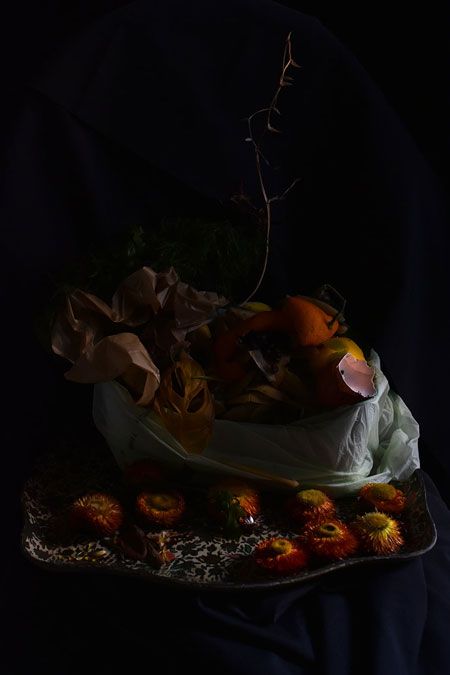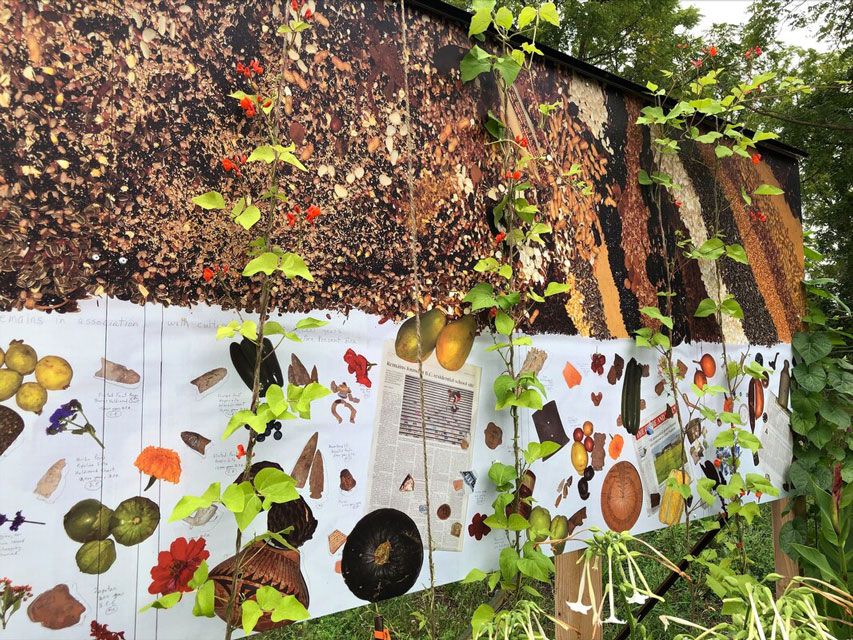As the COVID-19 pandemic stilled artistic innovation and stunted community involvement worldwide, London-based artistic community, The Embassy Cultural House, set out on a new project, Pandemic Gardens: Resilience Through Nature. This project sought to disrupt the all too contemporary relationship between art, competition and rapid production. Through revisiting an isolated self and paying increased attention to the forms of life that exists around us, this community of artists challenged themselves to lean in to a more steadfast engagement with their craft. Gardening and tending to plant life, they envisioned, could be a worthwhile means by which they are able to revisit the environment and utilize it as a site wherein their artistic production may re-occur.
Pandemic Gardens is an international and interdisciplinary group exhibition organized by Ron Benner and Rachel MacGillivray, co-founder and community member of the Embassy Cultural House respectively. Benner and MacGillivray offer their forewords on the Pandemic Gardens online exhibition, citing the recent pandemic as the urgency to develop the new way of approaching art that they needed. Resilience Through Nature is the online exhibition portion of Pandemic Gardens that showcases artworks, coping mechanisms and community engagements that dedicate themselves to meaningful relationships with nature from various artists all over the world.
Most notably, Benner’s very first photographic/garden installation since the onset of the pandemic: Remains In Association With Cultural Deposits: 10,000 Years Before Present Era. This installation at The Arboretum (Harrison House) at the University of Guelph was developed in light of Canada’s unjust colonial history of residential schools and the recent discovery of unmarked graves of Indigenous children on the grounds of the former residential schools.

Benner’s garden features First Nations cultural deposits (artifacts), plants native to the Americas such as tomatoes, chili peppers, maize, tobacco, marigolds, petunias, morning glories, canna lilies and scarlet runner beans, pictures of other indigenous fruits and vegetables, as well as six Globe and Mail articles relating to the unmarked children's graves that act as a media timeline of the discourse taking place during the process of the installation.
Benner comprehends the historical acts of Indigenous oppression through what the land may offer. Though the news during the pandemic circulated the bodies that continue to be unearthed, and due respect should be paid to those tragedies, Benner becomes invested also in how he, from his isolated home, may help Indigenous land bring forth more Indigenous life. His garden and its showcase becomes art as a response and commemoration of those before him, putting into perspective the United Nations Sustainable Development Goals of Life on Land and Peace, Justice and Strong Institutions.

The project takes many forms for the different artists involved, which becomes the point for The Embassy Cultural House and MacGillivray puts it best, “Whether your experience was painting fantasy gardens while in lockdown, visiting public green spaces, taking care of a beloved house plant, containers on your balcony, or working in your own garden—tending vegetables, flowers, or weeds—we want to share your experience. Let’s recognize and acknowledge these connections with the natural world.”
Visit the Embassy Cultural House here.
Visit Resilience Through Nature, the online exhibition of Pandemic Gardens here.
Read more about unmarked Indigenous graves and Canada’s colonial history here.
